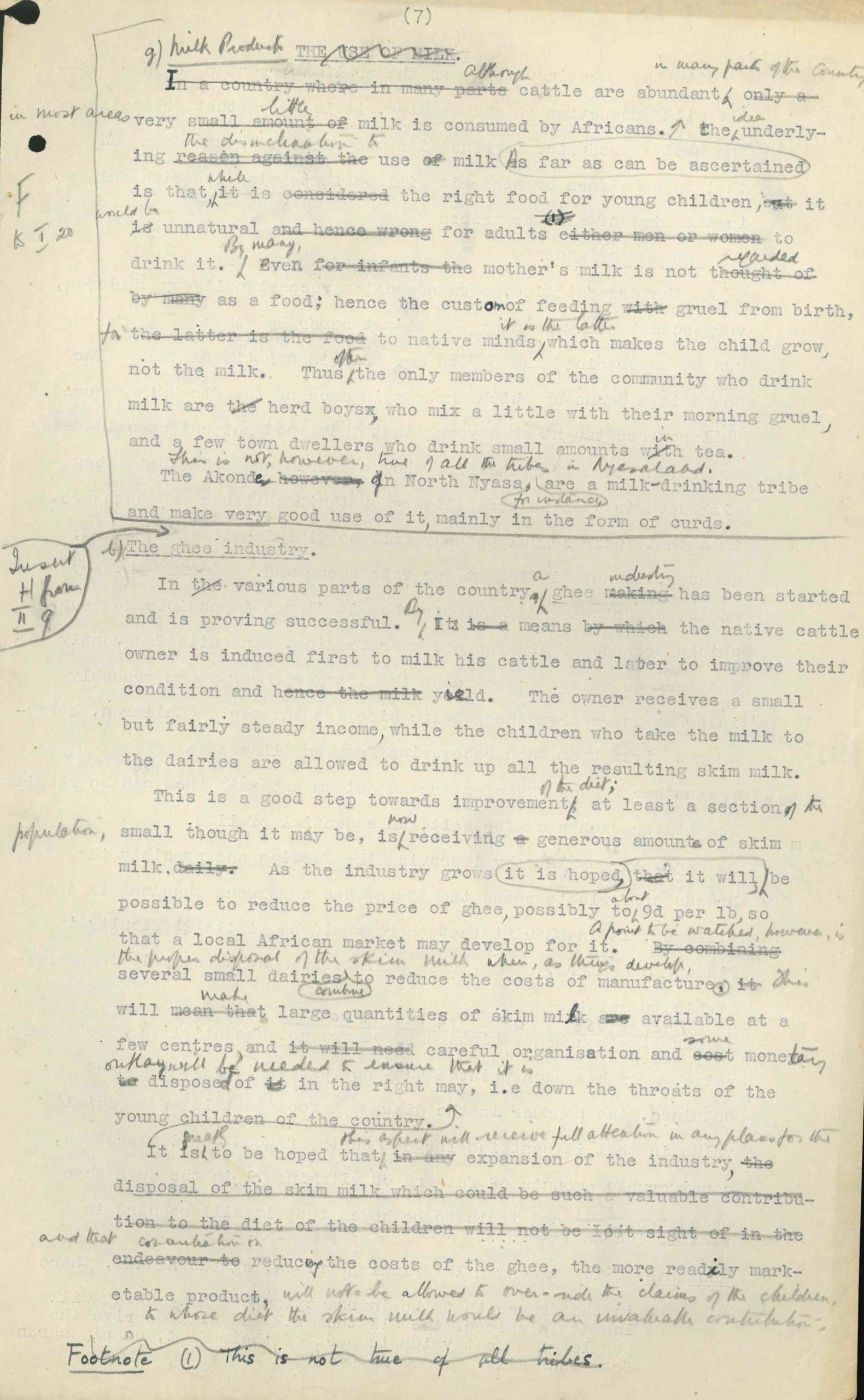Milk
This section looks at the way colonial ideas on the nutritional superiority of a dairy-rich diet informed the way the eating habits of the Nyasaland people were interpreted by researchers from the Nutrition Development Unit. Attempts by the Unit to introduce milk into the local diet, as a means to ‘improve’ nutrition illustrates the way researchers tried to impose their own habits, attitudes and beliefs onto the lives of the people they encountered.
Jessie Barker – Feeding Africans in Nyasaland, Ch.2, p.7.

Barker examines the reasons why milk does not form a significant part of the Nyasaland diet. Her perspective on this, and the idea that the absence of milk, and dairy in general, represents a dietary deficiency is shaped by her colonial background.
In this section Barker discusses ways to introduce milk into the diets of local people. She refers directly to this intervention as an ‘improvement of the diet’, again reinforcing the idea that the dairy-rich European diet is superior and ought to be imposed on the communities in Nyasaland
Jessie Barker – Feeding Africans in Nyasaland, Ch.2, p.8

This extract shows the interventionist nature of the Nutrition Development Unit’s work in Nyasaland. Barker refers to a plan to increase milk production in the country as part of the development of the ghee (clarified butter) industry. The hope was that this ready supply of milk would coincide with a change in local attitudes towards it.
This annotation to the text – presumably by Mrs Culwick, who worked alongside Barker in the Unit, and edited her text – highlights the danger of ‘dirty’ milk and suggests that the people may well be justified in their tendency to avoid it. However, her use of the phrase ‘backwards’ to describe the hygiene of the Nyasaland people shows once again the way the assumed superiority of the colonial researchers informed the way they interpreted local practices and beliefs.
Jessie Barker – Feeding Africans in Nyasaland, Ch.2, p.8, footnote.

Here Barker acknowledges that the proposed intervention – of developing a ghee making industry as a way to encourage milk production – might result in local people selling the milk that they might otherwise have consumed as part of their normal diet. This extract highlights the disruptive potential of colonial interventions. In this instance creating a demand for a product (milk) without first ensuring the communities involved have the means to increase production.
